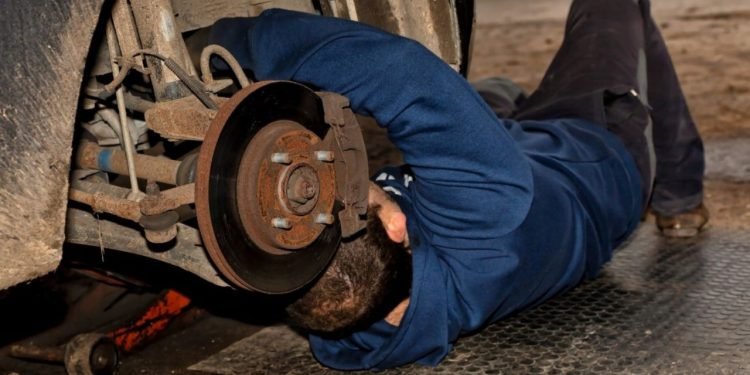Everyone who owns a car knows you must take care of it regularly. You must check the oil, change the water, check the tires, and occasionally wash it. If you neglect your car, you need to spend lots of money to fix it whenever you get around to taking care of it.
But sometimes, your old car stops working even if you’re doing regular car maintenance. That’s when you must determine if it’s worth fixing your old car.
So what factors determine if your car is worth fixing? Here are some considerations to help you make an informed decision when to fix a vehicle.
Overall Condition
When figuring out how good your junk vehicle is, you should consider several things that can affect its value and how long it will last. Think about how many miles the car has and if it’s getting close to a point where major parts might start to break.
Check how much wear and tear there is, like if the frame, brakes, or tires are worn out. Repairs like these can add up quickly. Also, check the body for rust, which can signal damage to the structure.
If your car has more than one problem or needs much work beyond the problem, it might not be worth fixing. When this happens, the cost of repairs can quickly add up to more than the car is worth, making it smarter to buy a younger car that is safer and more reliable.
Cost of Repairs
To make an informed choice, getting a detailed estimate of the needed repairs is important. You should get more than one quote from respected mechanics or service centers to ensure the price is right. Once you have the figures, you can compare how much it will cost to fix your car to how much it is worth.
If the repairs are manageable and will cost little as much as the car is worth, it might be worth fixing. But if the fixes are too expensive or come close to or exceed the car’s value, it might not be financially worth it.
Car’s Value
You need to know how much your old car is worth on the market to decide if it’s worth fixing. Use reliable sources like Kelley Blue Book, NADA Guides, or online marketplaces to get estimates based on your car’s make, model, year, mileage, and condition.
If the expected cost of repairs is a big chunk of the car’s value, it may not be a good idea from a financial standpoint to fix the car. In these situations, selling the car as-is might be better, or considering other options, like turning it in for a newer car.
But if you have a lot of memories with your old car or it has special features that make it more valuable to you, you might be willing to spend more on fixes despite the cost-to-value ratio.
Reliability and Future Expenses
Consider the track record of your old car in terms of reliability and potential future expenses. If your vehicle has a history of frequent breakdowns or recurring issues, it may indicate more significant problems lurking beneath the surface. As a car ages, certain components may begin to wear out, leading to costly repairs down the line.
If you frequently spend money on repairs and dealing with unexpected breakdowns, it could be a sign that investing in a more reliable and newer vehicle is a more practical choice. Evaluating the potential ongoing maintenance and repair costs plus referring to this source on the factors to consider before selling a junk vehicle can provide valuable insights into the decision-making process.
Considering the financial implications and long-term benefits of upgrading to a more dependable vehicle, it’s important to weigh the pros and cons.
Personal Attachment or Sentimentality
Sometimes, the decision to fix an old car goes beyond financial considerations. If you have a strong emotional attachment to your vehicle or if it holds sentimental value, it may sway your decision to invest in repairs. Perhaps the car has been in your family for generations or has memories of significant moments.
In such cases, the sentimental value can outweigh the practicality of the repairs. However, it’s important to balance emotional attachment and financial feasibility. Consider whether the repairs will restore the car to a functional and reliable state and whether the emotional value justifies the potential expenses and ongoing maintenance.
Alternatives and Budget
Assessing your financial situation and exploring alternative options is crucial when deciding whether to fix an old car. Consider your budget and evaluate whether you can comfortably afford the repairs without compromising other essential financial obligations.
It’s also important to assess the potential benefits of investing that repair money in a newer vehicle instead. Research the market for used cars with better reliability, improved safety features, and lower maintenance costs.
Compare the overall cost of repairs with the potential ongoing expenses of an aging vehicle. If the repair costs are high and the car will likely require additional repairs shortly, it may be more financially sound to allocate those funds toward purchasing a more dependable and efficient vehicle.
Environmental Considerations
When choosing whether or not to fix a car, you should also consider how it will affect the environment. Older cars use more gas and put out more pollution than newer models that meet tighter environmental standards.
If you want to reduce your carbon footprint and help make the future more sustainable, switch to a more fuel-efficient or electric car. But it’s important to weigh the environmental benefits against the resources used to make a new car.
Make Your Old Car Shine Again
The decision to fix an older car depends on the individual and their situation. Ultimately, it is a personal decision that requires careful consideration of the costs, safety, and reliability.
If you need help deciding whether to keep and maintain your old car, contact a professional auto mechanic or financial advisor for guidance.
Was this article helpful to you? If so, make sure to check out our blog for more useful information and resources.

















